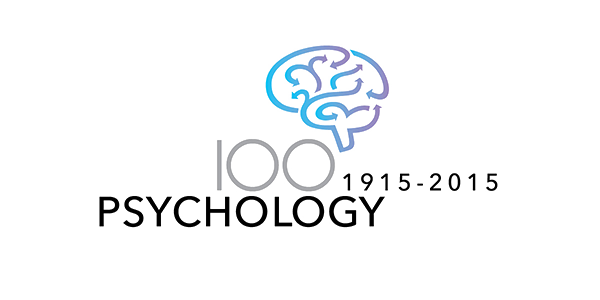
Jennifer Bruder
Associate Dean, Research; Associate Teaching Professor, Psychology (CMU Qatar)
Areas of Expertise
Cognitive Science, Language Processing, Neuropsychology
Bio
Jennifer Bruder is an associate teaching professor of psychology at Carnegie Mellon University in Qatar where she teaches a variety of courses related to cognition, neurobiology, and research methods.
Her current research interests include two vastly different topics: the first pertains to neurodevelopmental disorders, such as autism and dyslexia, and the second revolves around efforts to characterize and describe the issues important to environmental and sustainable psychology in Qatar and the Gulf region.
Education
Ph.D. Dr. Hum. Biol., Developmental Neuro-Cognitive Psychology, Department of Adolescent and Child Psychiatry, University of Munich, Munich, Germany
M.Sc., Neuro-Cognitive Psychology, Elite Network Bavaria, Department of Experimental Psychology, University of Munich, Munich, Germany
B.Sc., Psychology. University of Lethbridge, Alberta, Canada
Research
Keywords: environmental psychology, sustainable psychology, culture and cognition, dyslexia, autism, dyscalculia, ADHD, developmental disorders, EEGPublications
Wachinger C, Volkmer S, Bublath K, Bruder J, Bartling J, & Schulte- Körne G. (2018). Does the late positive component reflect successful reading acquisition? A longitudinal ERP study. Neuroimage: Clinical, 17, 232-240Becker J, … Schumacher J. (2014). Genetic analysis of dyslexia candidate genes in the European cross-linguistic NeuroDys cohort. European Journal of Human Genetics, 22 (5), 675-680
Hasko S, Groth K, Bruder J, Bartling J & Schulte-Körne G. (2014). What does the brain of children with developmental dyslexia tell us about reading improvement? ERP evidence from an intervention study. Frontiers in Human Neuroscience, 8, 441
Moll K, Ramus F, Bartling J, Bruder J, … Landerl K. (2014). Cognitive mechanisms underlying reading and spelling development in five European orthographies. Learning and Instruction, 29, 65-77
Moll K, Kunze S, Neuhoff N, Bruder J, & Schulte-Körne G. (2014). Specific learning disorder: Prevalence and gender differences. Plos 1, https://doi.org/10.1371/journal.pone.0103537
Groth K, Hasko S, Bruder J, Kunze S & Schulte-Körne G. (2013) Interventionseffekte bei Lese-Rechtschreibstörung: Evaluation von zwei Förderkonzepte unter besondere Betrachtung methodischer Aspekte. Lernen und Lernstörungen, 2, 161-175
Hasko S, Groth K, Bruder J, Bartling J, & Schulte-Körne, G. (2013). The time course of reading processes in children with and without dyslexia: An ERP study. Frontiers in Human Neuroscience, 7, 570
Lohvansuu K, … Leppannen P. (2013). Separating mismatch negativity (MMN) response from auditory obligatory brain responses in school-aged children. Psychophysiology, 50, 640-652.
Bruder J, Ise E, Rückert E & Schulte-Körne G. (2012). Spelling disability: Neurophysiological correlates and intervention. In Breznitz Z, Berninger V & Rubinsten O. (Eds). Listening to many voices: Reading, writing,math and the brain. Springer
Hasko S, Bruder J, Bartling J & Schulte-Körne G. (2012) N300 indexes deficient connectivity between phonological and orthographical lexicons in children with dyslexia. Neuropsychologia, 50 (5), 640-54
Huang M, Hasko S, Schulte-Körne G & Bruder J. (2012). Automatic integration of auditory and visual information is not simultaneous in Chinese. Neuroscience Letters, http://dx.doi.org/10.1016/j.neulet.2012.08.031
Landerl K, et al…. Schulte-Körne G. (2012). Predictors of developmental dyslexia in European orthographies with varying complexity. The Journal of Child Psychology and Pyschiatry, 54: 686–694. doi:10.1111/jcpp.12029
Neuhoff N, Bruder J, Bartling J, Warnke A, Remschmidt H, Müller-Myhsok B & Schulte-Körne G. (2012). Evidence for the late MMN as a neurophysiological endophenotype for dyslexia. PloS One, 7 (5):e34909
Bruder J, Leppänen PH, Bartling J, Csépe V, Démonet JF & Schulte-Körne G. (2011). Children with dyslexia reveal abnormal native language representations: Evidence from a study of mismatch negativity. Psychophysiology, 48 (8), 1107-18
Bruder J, Bartling J, Csépe V, Démonet JF, Leppänen PH & Schulte-Körne G. (2011). An investigation of prototypical and atypical within-category vowels and non-speech analogues on cortical auditory evoked related potentials (AERPs) in 9 year old children. International Journal of Psychophysiology, 79 (2), 106-117
Czamara D, Bruder J, Becker J, Bartling J, Hoffmann P, Ludwig KU, Müller-Myhsok B & Schulte-Körne G. (2011). Association of a rare variant with mismatch negativity in a region between KIAA0319 and DCDC2 in dyslexia. Behavior Genetics, 41 (1), 110-119
Großheinrich N, Kademann S, Bruder J, Bartling J & Suchodoletz Wv. (2010). Auditory sensory memory and language abilities in former late talkers: A mismatch negativity study. Psychophysiology, 47, 822-830
Schulte-Körne G & Bruder J. (2010). Clinical neurophysiology of visual and auditory processing in dyslexia: A review. Clinical Neurophysiology, 121, 1794-1809
Ludwig KU, Roeske D, Herms S, Schumacher J, Warnke A, Plume E, Neuhoff N, Bruder J, Remschmidt H, Schulte-Körne G, Müller-Myhsok B, Nöthen MM & Hoffmann P. (2010). Variation in GRIN2B contributes to weak performance in verbal short-term memory in children with dyslexia. American Journal of Medical Genetics Part B (Neuropsychiatric Genetics), 153B (2), 503-511
Roeske D, Ludwig KU, Neuhoff N, Bruder J, Becker J, Warnke A, Remschmidt H, Bartling J, Hoffmann P, Müller-Myhsok B, Nöthen MM & Schulte-Körne G. (2009). First genome-wide association scan on neurophysiological endophenotypes points to trans-regulation-effects on SLC2A3 in dyslexic children. Molecular Psychiatry, 16 (1), 97-107
Gramann K, Bruder J & Deubel H. (2009). Eye-movements during navigation in a virtual tunnel. InternationalJournal of Neuroscience, 119 (10), 1755-1178
Bruder J, Vetter C, Groth K, Beraldi A & Fast K. (2008). False memories of emotional and neutral words.Behavioural Neurology; 19 (1-2), 7-11
Schulte-Körne G, Ludwig KU, Bruder J, Nöthen MM, Müller-Myhsok B & Hoffmann P. (2007). Genetics and Neuroscience in dyslexia: Perspectives for education and remediation. Mind, Brain and Education; 1(4),162-172
